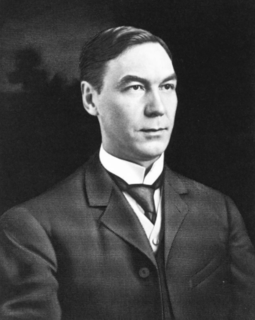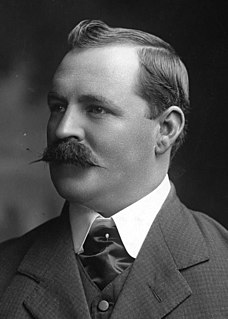A Quote by Ruth Benedict
Most people are shaped to the form of their culture because of the enormous malleability of their original endowment. They are plastic to the moulding force of the society into which they are born. It does not matter whether, with the Northwest Coast, it requires delusions of self-reference, or with our own civilization the amassing of possessions. In any case the great mass of individuals take quite readily the form that is presented to them.
Quote Topics
Related Quotes
To be born, to live and to die is merely to change forms... And what does one form matter any more than another?... Each form has its own sort of happiness and unhappiness. From the elephant down to the flea... from the flea down to the sensitive and living molecule which is the origin of all, there is not a speck in the whole of nature that does not feel pain or pleasure.
It must be understood that prime matter, and form as well, is neither generated nor corrupted, because every generation is from something to something. Now that from which generation proceeds is matter, and that to which it proceeds is form. So that, if matter or form were generated, there would be a matter for matter and a form for form, endlessly. Whence, there is generation only of the composite, properly speaking.
To me, form doesn't always follow function. Form has a life of its own, and at times, it may be the motivating force in design. When you're dealing with form as a sculptor, you feel that you are quite free in attempting to mould and shape things you want to do, but in architecture, it's much more difficult because it has to have a function.
Why does everyone take for granted that we don't learn to grow arms, but rather, are designed to grow arms? Similarly, we should conclude that in the case of the development of moral systems; there's a biological endowment which in effect requires us to develop a system of moral judgment and a theory of justice, if you like, that in fact has detailed applicability over an enormous range.
Cliche refers to words, commonplace to ideas. Cliche describes the form or the letter, commonplace the substance or spirit. To confuse them is to confuse the thought with the expression of the thought. The cliche is immediately perceivable; the commonplace very often escapes notice if decked out in original dress. There are few examples, in any literature, of new ideas expressed in original form. The most critical mind must often be content with one or the other of these pleasures, only too happy when it is not deprived of both at once, which is not too rarely the case.
Because all the societies, all the nations, all the cultures, have taken it for granted that the individuals exist for them, not vice-versa. To me, just the opposite is the case: the society exists for the individual, the culture exists for the individual, the nation exists for the individual. Everything can be sacrificed, but the individual cannot be sacrificed for anything. Individuality is the very flowering of existence - nothing is higher than it. But no culture, no society, no civilization is ready to accept a simple truth.
But when we face the great questions about gravitation Does it require time? Is it polar to the 'outside of the universe' or to anything? Has it any reference to electricity? or does it stand on the very foundation of matter-mass or inertia? then we feel the need of tests, whether they be comets or nebulae or laboratory experiments or bold questions as to the truth of received opinions.
The Universal mind is not only intelligence, but it is substance, and this substance is the attractive force which brings electrons together by the law of attraction so they form atoms; the atoms in turn are brought together by the same law and form molecules; molecules take objective forms and so we find that the law is the creative force behind every manifestation, not only of atoms, but of worlds, of the universe, of everything of which the imagination can form any conception.
Student loans are destroying the imagination of youth. If there’s a way of a society committing mass suicide, what better way than to take all the youngest, most energetic, creative, joyous people in your society and saddle them with, like $50,000 of debt so they have to be slaves? There goes your music. There goes your culture. There goes everything new that would pop out. And in a way, this is what’s happened to our society. We’re a society that has lost any ability to incorporate the interesting, creative and eccentric people.
You should form your own opinions, and I think that's why social media is good because it's an alternative source of information that can help you form your opinion, that might not be your parents, and might not be what the media is trying to force down your throat. So that's why it's important for artists and musicians to speak up, because for those people who have an inkling that their parents' views aren't right or that their parents don't have any views or whatever, that's an alternative source of information that can help them form their own opinion.
An empirical philosophy is in any case a kind of intellectual disrobing. We cannot permanently divest ourselves of the intellectual habits we take on and wear when we assimilate the culture of our own time and place. But intelligent furthering of culture demands that we take some of them off, that we inspect them critically to see what they are made of and what wearing them does to us. We cannot achieve recovery of primitive naïveté. But there is attainable a cultivated naïveté of eye, ear and thought.
Through death you find yourself, because you no longer identify with form. You realize you are not the form with which you had identified neither the physical nor the psychological form of "me". That form goes. It dissolves and who you are beyond form emerges through the opening where that form was. One could almost say that every form of life obscures God.
The most interesting characteristic of the cube is that it is relatively uninteresting. Compared to any other three-dimensional form, the cube lacks any aggressive force, implies no motion, and is least emotive. Therefore, it is the best form to use as a basic unit for any more elaborate function, the grammatical device from which the work may proceed.




































